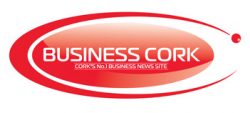Calls for VAT cut for food-based hospitality to be extended to small retailers and B&Bs
- VAT cut is not the perfect ‘panacea’ on its own
- Employers cannot shoulder all of the costs of Government-driven employment measures
The “long-overdue” VAT rate cut for food-based hospitality businesses should be extended to a raft of other small businesses, including small retailers and accommodation providers, such as bed and breakfasts (B&Bs) and small guesthouses.
This is the contention of experts at Excel Recruitment who are also warning that the VAT cut should not be mistaken as a catch-all panacea for the huge cost challenges facing small businesses today.
According to the recruiters with an office on Penrose Wharf, who work with hundreds of hospitality and retail businesses throughout the country, the reduced VAT rate should just be one of a suite of measures that must be introduced by the incoming government to ease the pressure on hospitality businesses and other SMEs around the country.
Shane McLave, Managing Director of Excel Recruitment said:
“We welcome the incoming government’s decision to cut the VAT rate for food-based hospitality, entertainment and hairdressing businesses but they must not stop there. There are thousands of other small businesses across the country, who would not be eligible for this VAT cut as it stands, but who are really struggling and for whom closure could be a real possibility this year. We are calling on the Government in waiting to widen the net”.
“Wage increases crippled Irish hospitality and retail businesses in 2024 and will continue to do so in 2025. This crisis has forced businesses to rethink their models in a desperate bid for long-term survival. The hospitality industry is at a critical juncture, with over 700 venues shutting down in 2024 alone”.
Excel Recruitment say the VAT cut on its own falls far short of what is needed and that more still needs to be done to curb the cost of employment.
Mr. McLave went on to say,
“There seems to be a belief amongst the powers that be that SMEs can absorb whatever costs the Government sends their way. However, the extent of insolvencies outlined in a recent Deloitte report[1] – with a record 875 recorded for 2024, the highest number since 2016 – shows clearly that this is not the case. The reduced 9pc VAT rate is a sign that the penny is starting to drop with the Government on the mounting employment costs facing businesses – but it should be just one of a suite of measures on the agenda of the incoming Government.”
Government-driven employment costs
Excel Recruitment cite 5 Government-driven employment costs which have increased costs for small businesses:
- Since January 1st, the national minimum wage increased from €12.70 to €13.50 per hour[2].
- The introduction of three days statutory sick pay in 2023, an entitlement which increased to five days in 2024.
- The extension of parent’s leave and benefits from 7 to 9 weeks from August 1, 2024.
- The October 1, 2024, increase in all PRSI contributions (including employer, employee and self-employed), with more increases to follow.
- The planned roll-out of pension auto-enrolment.
Mr McLave explained:
“Recent years have seen hotels, pubs, restaurants and retailers around the country struggling with a raft of extra and new costs as a result of measures introduced by the Government to improve working conditions. While the changes are laudable, employers cannot be expected to shoulder all of the costs – the State should be making a contribution too. Immediate and decisive action is essential to address these pressing challenges before more businesses are lost”
“Many employers are finding it difficult to absorb these increased wage costs.
A lot of employers are still coming to grips with the cost of mandatory sick days. No one wants a situation where an employee can’t afford to take sick leave when they are ill. However, increases in statutory sick pay in recent years have put huge pressure on employers. Employers not only face higher costs as a result of these provisions, but the increased sick pay obligations can also disrupt workforce management, requiring employers to redistribute tasks among remaining staff, or in some cases, find temporary replacements in an employee’s absence.
While the increases in parent’s leave are important for the work-life balance of employees and while employers are not obliged to pay workers while on parent’s leave, they will still need to manage longer employee absences. This may pose challenges, such as hiring temporary replacements or reassigning tasks among existing staff.
Employers are not against these reforms; they are as invested as anyone into making them work – but they cannot be expected to play their part without outside support.”
Staff Shortages
In addition to government-driven costs, staff shortages in hospitality and retail have forced employers in those sectors to substantially increase pay rates in a bid to attract and retain staff, according to the Excel Recruitment Salary Guide for 2025.
Mr McLave reported,
“There have been noticeable wage adjustments for entry-level and supervisory roles in the hospitality sector. This followed across- the-board salary increases in a variety of roles in the hospitality sector in 2024, ranging from wedding coordinators to waiting staff to bar managers to receptionists, amongst others, with many average salaries up more than 10pc[3].
In the retail sector, most grocery stores will have to increase pay by at least 5pc this year as a result of the “ripple effect” that minimum wage increases had on overall wages.
In addition, there has also been double-digit wage increases for senior staff in fashion retail with early 2024 seeing increases of up to 12pc for duty managers and team managers”.







